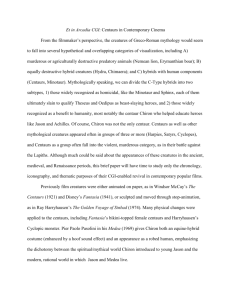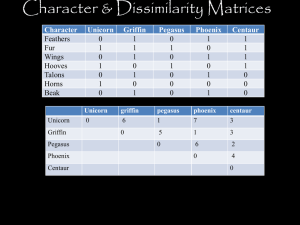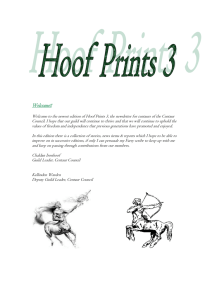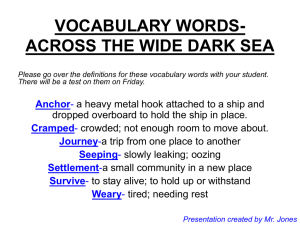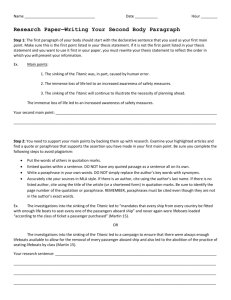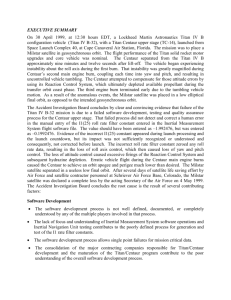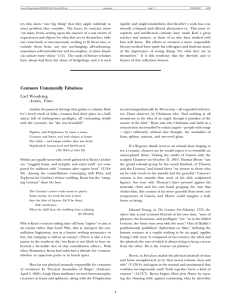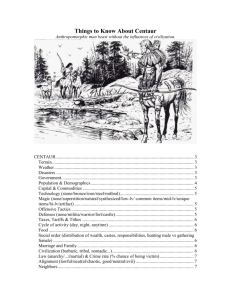Detailed activities of Exploration 2
advertisement
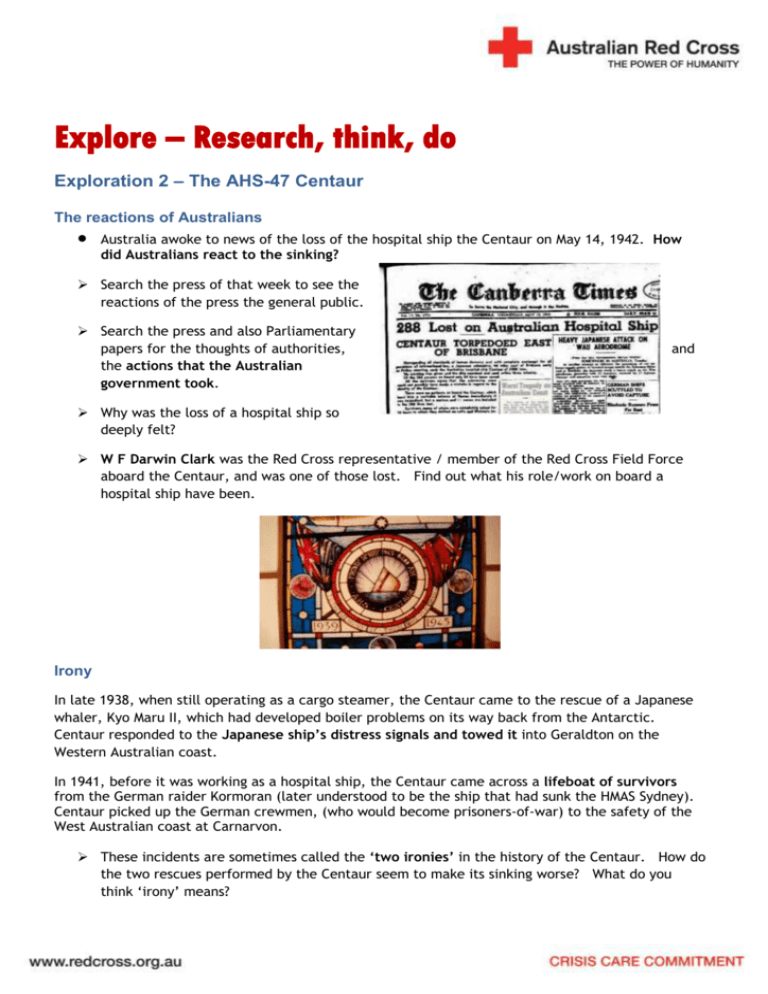
Explore – Research, think, do Exploration 2 – The AHS-47 Centaur The reactions of Australians Australia awoke to news of the loss of the hospital ship the Centaur on May 14, 1942. How did Australians react to the sinking? Search the press of that week to see the reactions of the press the general public. Search the press and also Parliamentary papers for the thoughts of authorities, the actions that the Australian government took. and Why was the loss of a hospital ship so deeply felt? W F Darwin Clark was the Red Cross representative / member of the Red Cross Field Force aboard the Centaur, and was one of those lost. Find out what his role/work on board a hospital ship have been. Irony In late 1938, when still operating as a cargo steamer, the Centaur came to the rescue of a Japanese whaler, Kyo Maru II, which had developed boiler problems on its way back from the Antarctic. Centaur responded to the Japanese ship’s distress signals and towed it into Geraldton on the Western Australian coast. In 1941, before it was working as a hospital ship, the Centaur came across a lifeboat of survivors from the German raider Kormoran (later understood to be the ship that had sunk the HMAS Sydney). Centaur picked up the German crewmen, (who would become prisoners-of-war) to the safety of the West Australian coast at Carnarvon. These incidents are sometimes called the ‘two ironies’ in the history of the Centaur. How do the two rescues performed by the Centaur seem to make its sinking worse? What do you think ‘irony’ means? When the Geneva Conventions work well, it is often because there is an element of mutual need. What one side does for the other is returned – and that makes a worthwhile deal. Find an example of that – drawing on any one of the four Geneva Conventions, in any armed conflict. Justice for the Centaur? The naval captain responsible for the sinking of the Centaur was (Lieutenant Commander) LCDR Hajime Nagakawa, captain of Japanese submarine I-177. When/how was Nagakawa identified as the one responsible for the sinking? What happened to Nagakawa: Was he ever tried for the Centaur tragedy? For what other crime was he convicted and punished? What do you think might be an appropriate sentence for the sinking of the Centaur? Assume that the captain deliberately sank what he knew to be an unarmed hospital ship. Justify your answer. Can you find examples of naval captains from World War 2 who did face courts for war crimes? What is the point of war crimes trials? Are they important at the end of war, or is it better to forgive and forget? Why? LCDR Nakagawa did claim later that he was following the orders of his superior officer, Vice Admiral Shiro Takasu. Do you think this is an adequate excuse? Why or why not? Many leading Nazis (right) made the plea of ‘I was just following orders’ at the Nuremberg trials at the end of World War 2. How did the judges react to that line of argument? Even wars have limits – Debate World War 2 is often seen as the beginning of ‘total war’- when anyone, when whole populations, whole cities was fair game. Divide the class into teams, preparing to debate the topic that ‘Even wars have limits’. That is, are there fundamental laws that must be obeyed even in war, or is it a case of ‘anything goes’? To help teams, a great deal of information on international humanitarian law can be found on Red Cross sites, particularly: Australian Red Cross www.redcross/org/au International Committee of Red Cross www.icrc.org


